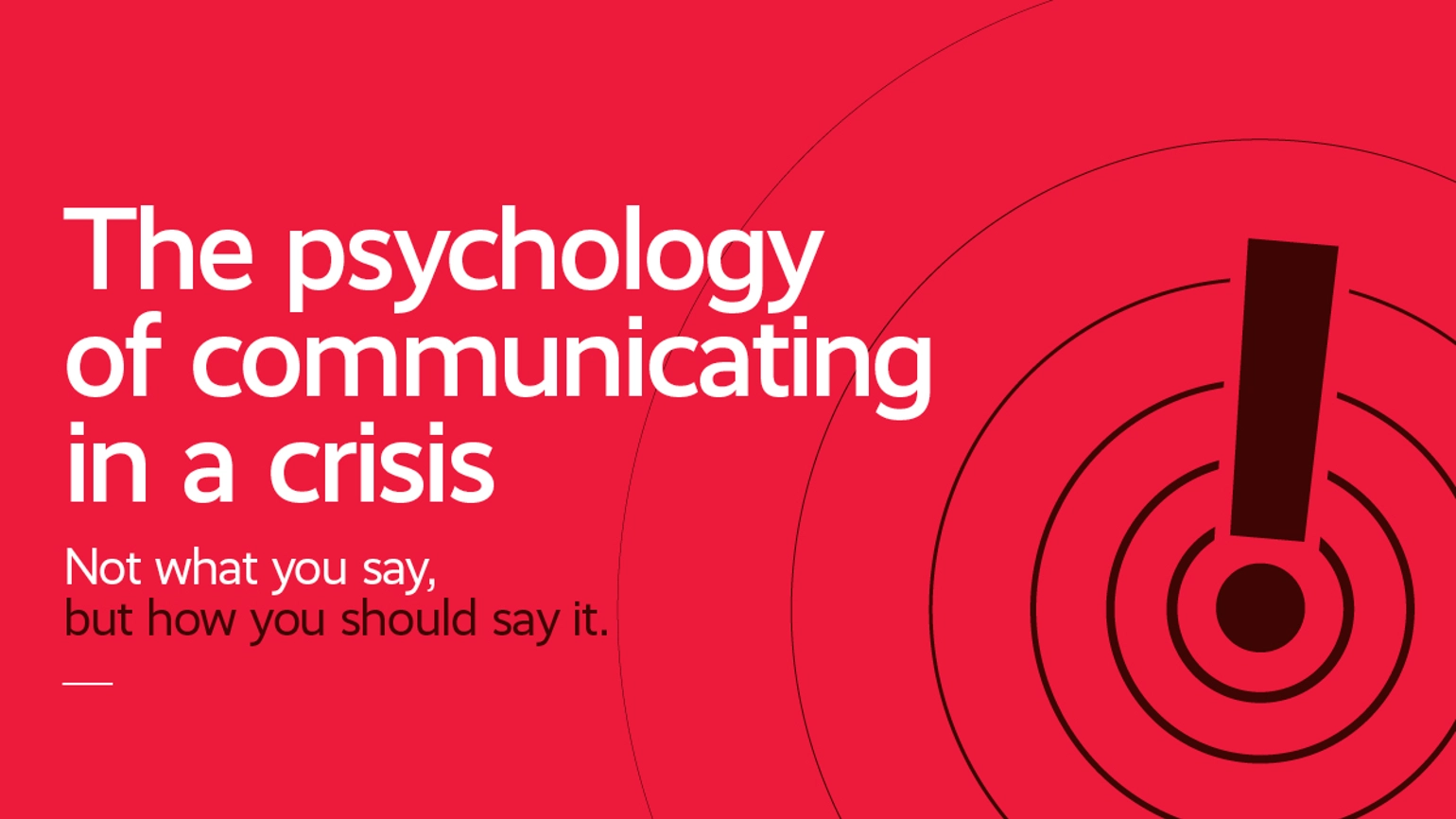Return to journal
The psychology of communicating in a crisis
How we think matters. Check out our bitesize tips on how to keep your comms effective.

Over the last few weeks we’ve seen all kinds of people behave in all kinds of ways they wouldn’t normally. On TV, on social media, in supermarkets. Maybe even at work.
Of course, these aren’t normal times. There’s science behind this behaviour: a crisis like this fundamentally changes how people think at a chemical level. It makes a big difference to how they absorb, process and retain information.
But while there’s been all kinds of guidance for communicators over the last week or so about what to communicate in the crisis, there’s been very little about the how. It’s arguably never been more important for organisations of all kinds to have their messages absorbed, understood and actioned – but the psychological landscape has changed for every single audience group. Are messages really cutting through?
We’ve looked at a range of academic studies – and sat down for a chat with a psychologist or two – to find out more about how forces like mass hysteria and emotional contagion are rendering us less able to process or recall information and leave our attention overwhelmed and decision-making flawed.
From there we looked at five simple, easy-to-implement ways of adapting your messaging to make sure businesses, institutions, government bodies and charities’ communications is as effective as possible. Take a look.
We know it’s a busy time, so if there’s any help you need with either critical crisis campaigns or employee comms (or perhaps even just lending another pair of hands), just let us know.
